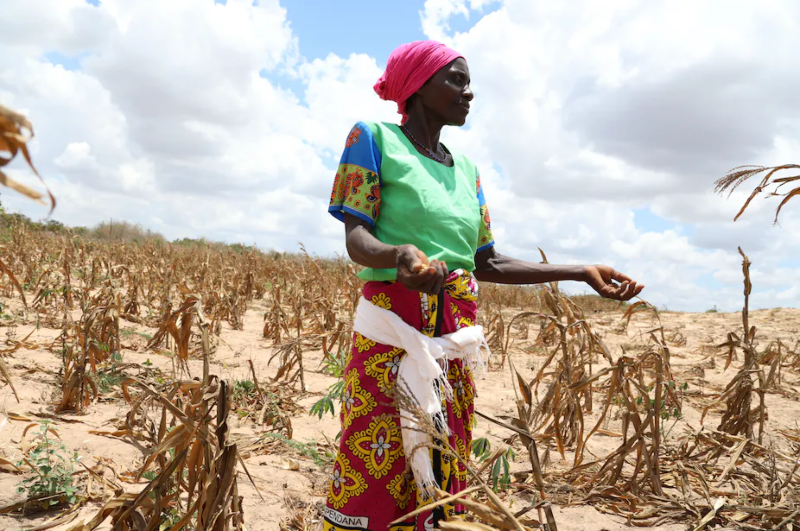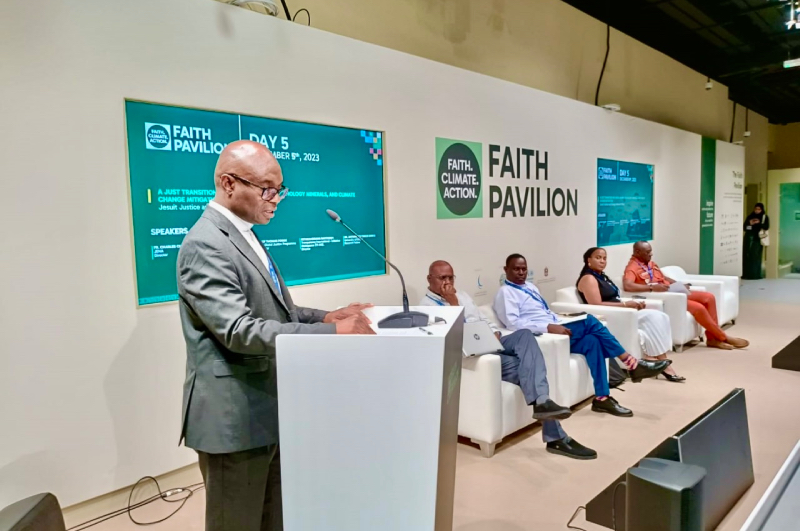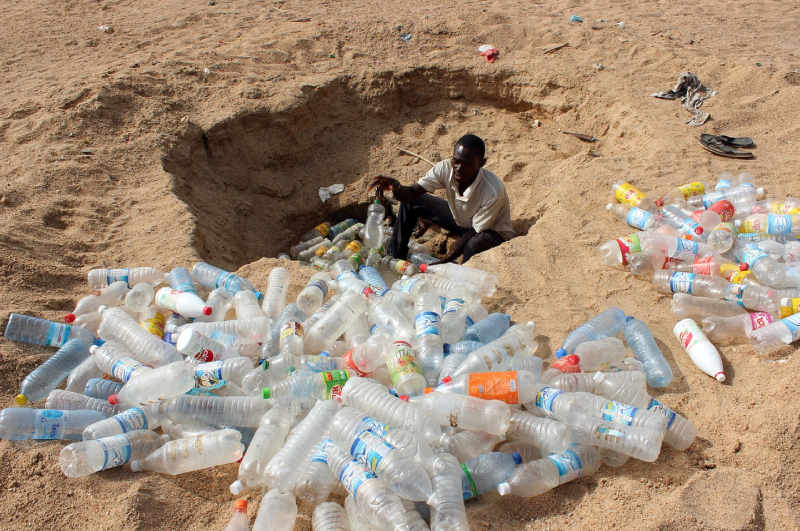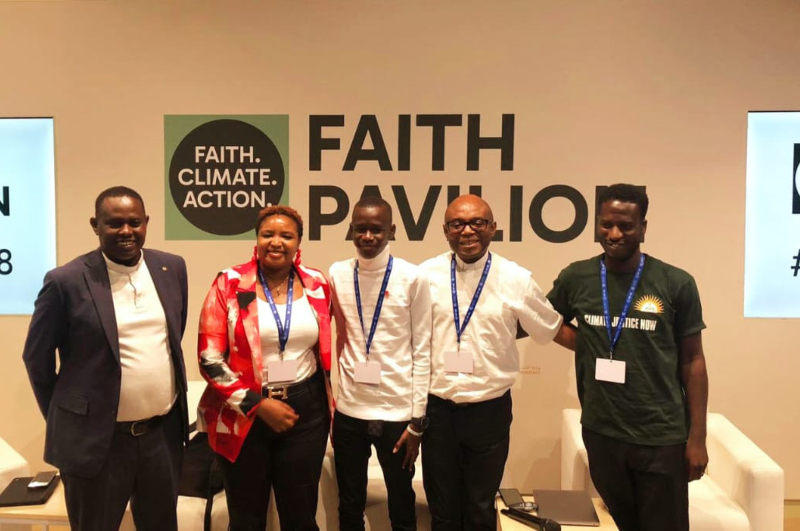

Blue foods are foods produced from the Ocean, Lakes and Rivers and they provide protein for over 3.2 Billion people worldwide.
Blue food systems have enormous potential to positively impact social justice through greater food sovereignty and self-determination. However the systems face challenges leading among them climate change. A shift in investment strategies is urgently needed to prioritize both social and ecological resilience, ensuring the inclusion of small-scale actors and food security in coastal developing states.
DUBAI, 11th December 2023 - The Jesuit Justice and Ecology Network Africa (JENA) in collaboration with the Panafrican Climate Justice Alliance (PACJA) successfully hosted a side event titled "Faith and the Blue Frontier: Climate, Justice, and Stewardship in Aquatic Ecosystems" on the 9th of December 2023 during COP28. The event explored faith-based approaches to ethically finance and bolster the resilience and sustainable transformation of vulnerable blue food systems.
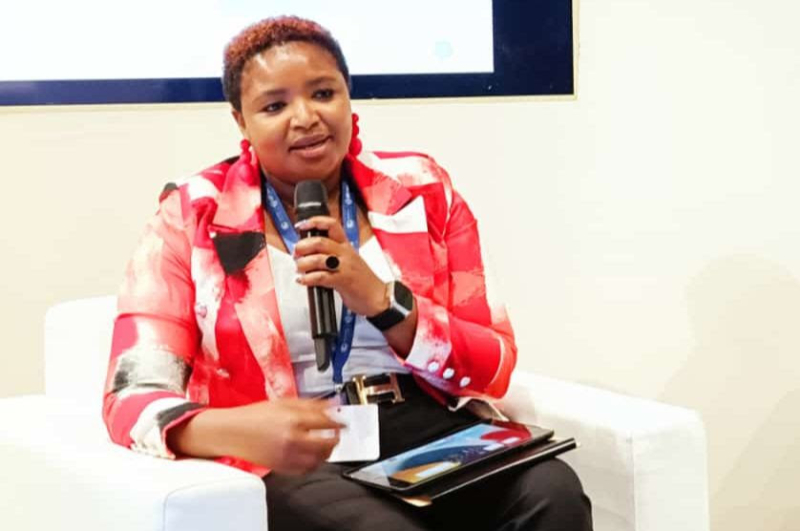 Yvonne Kuntai Programmes Lead: Advocacy and Governance and Integral Ecology at Jesuit Hakimani Centre in Nairobi - Kenya.
Yvonne Kuntai Programmes Lead: Advocacy and Governance and Integral Ecology at Jesuit Hakimani Centre in Nairobi - Kenya.
Speaking at the event, Yvonne Kuntai - Programmes Lead: Advocacy and Governance and Integral Ecology at Jesuit Hakimani Centre in Nairobi - Kenya said that,“ Small scale fisheries and women are the largest share of players in the blue foods value chain. They are the most vulnerable when it comes to climate change yet, they are most neglected by policy makers. We need to include them in development and implementation of policies”.
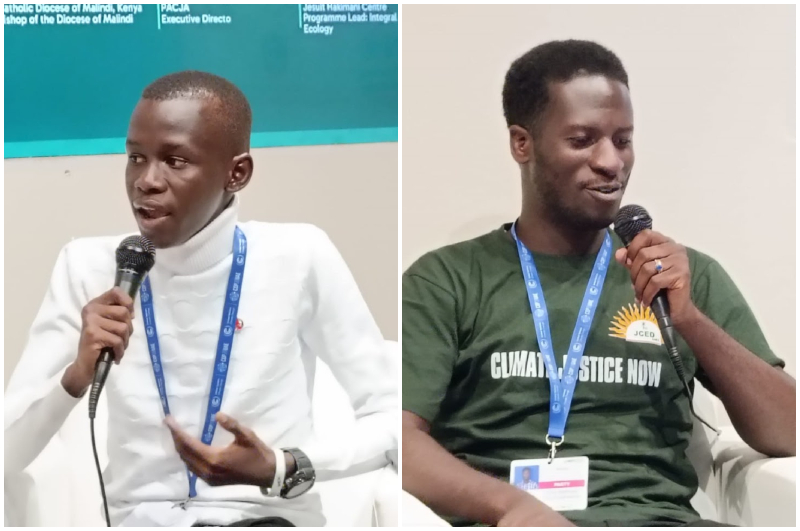 From left: Amoko Noami, a young climate action Activist from South Sudan and Matthews Tione Phwandaphwanda (right) - Policy Officer, Agro-ecology and Livelihoods, at the Jesuit Centre for Ecology and Development (JCED) in Malawi.
From left: Amoko Noami, a young climate action Activist from South Sudan and Matthews Tione Phwandaphwanda (right) - Policy Officer, Agro-ecology and Livelihoods, at the Jesuit Centre for Ecology and Development (JCED) in Malawi.
The event brought together prominent voices in the field among them Amoko Noami, a young Climate Action Activist from South Sudan, who at COP 28, elevated the voices of South Sudanese Children on matters of Climate, Justice, and Stewardship in Blue Food Systems. Representing Southern Africa was Matthews Tione Phwandaphwanda - Policy Officer, Agro-ecology and Livelihoods, at the Jesuit Centre for Ecology and Development (JCED) in Malawi. Malawi was recently devastated by cyclone Freddie posing a health and economic risk to it people. Giving us context on the impact, Mr. Phwandaphwanda stated that “70% of animal proteins consumed in Malawi are Blue foods, yet with Climate change incidences such as cyclone Freddie, strained gender and power relations in how people benefit from the resources were made even worse by declining fishing areas due to loss of biodiversity, and pollution. We must therefore tackle the problem from all these angles.”
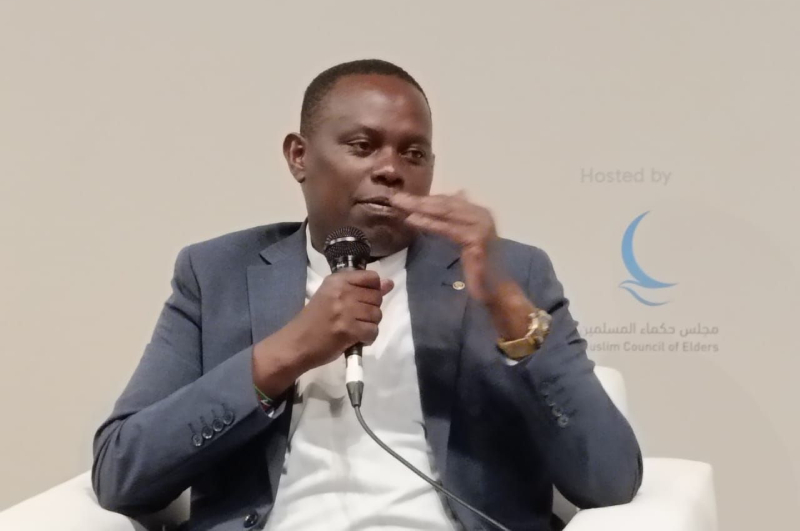 Rev. Dr. Paul Igweta, AMECEA, Secretary for Social Justice and Ecology.
Rev. Dr. Paul Igweta, AMECEA, Secretary for Social Justice and Ecology.
Rev Dr. Paul Paul Igweta, the AMECEA Secretary for Social Justice and Ecology, on the other hand, gave a theological reflection urging Christians from all over the world to refer to the Bible as the basis for the need to care for the earth and by extension, Pope Francis' encyclicals, Laudato Si’ and Deum. “You will find that a faith-led approach will be more effective as it appeals to the hearts and minds of people, therefore allowing us to generate solutions from the bottom-up at the community level. When properly interpreted, the Bible provides guidance and context for action from economic, ecological, gender, and technological perspectives”, he said.
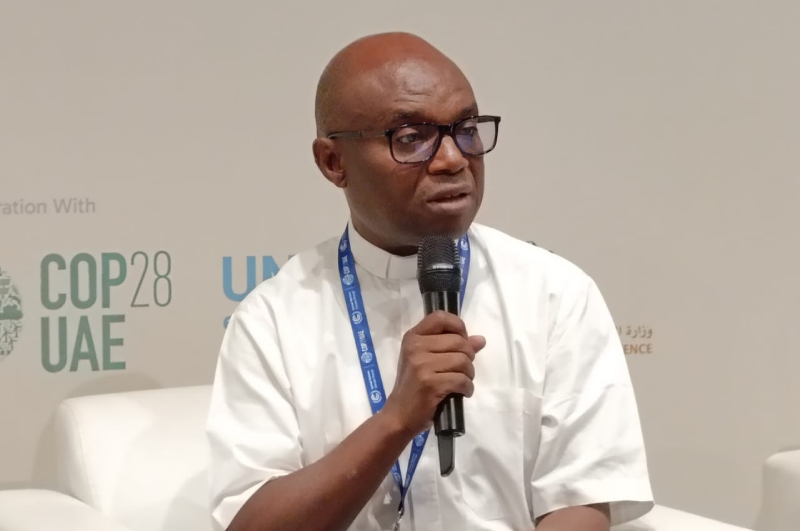 Fr. Charles Chilufya, SJ - Director, Jesuit Justice and Ecology Network Africa (JENA).
Fr. Charles Chilufya, SJ - Director, Jesuit Justice and Ecology Network Africa (JENA).
The session was moderated by Fr. Charles Chilufya, SJ, Director of JENA, who has been an ardent champion of social justice and ecology issues across the continent.
About JENA:
The Jesuit Justice and Ecology Network Africa (JENA) is a leading organization working at the intersection of social justice, environmental sustainability, and ethical practices in Africa.
For more information, email Fr. Charles Chilufya S.J via:
Email: cchilufya@jesuits.net
Tel: +254-786 584-784
About PACJA:
The Panafrican Climate Justice Alliance (PACJA) is a continental coalition of civil society organizations championing efforts to address climate change and promote climate justice across Africa.
Related Articles
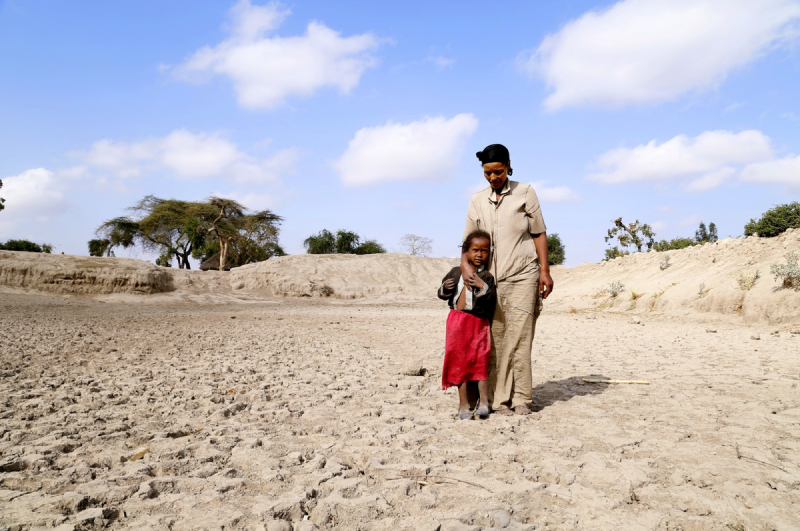
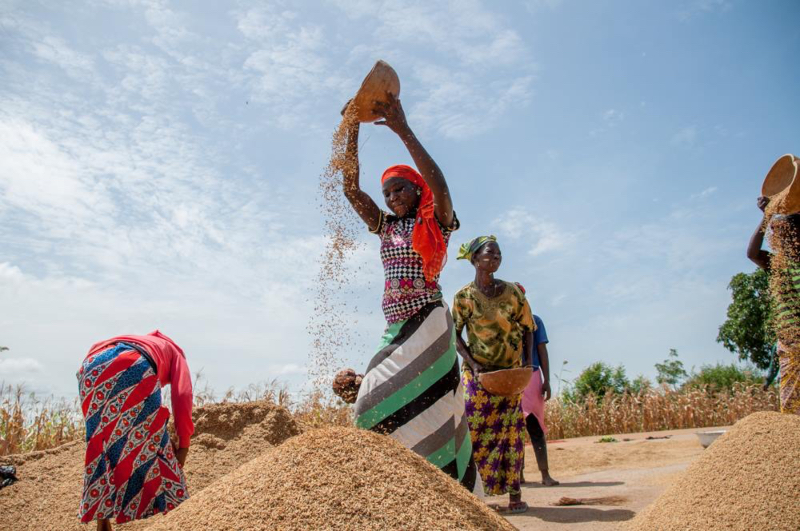
Select Payment Method
Pay by bank transfer
If you wish to make a donation by direct bank transfer please contact Fr Paul Hamill SJ treasurer@jesuits.africa. Fr Paul will get in touch with you about the best method of transfer for you and share account details with you. Donations can be one-off gifts or of any frequency; for example, you might wish to become a regular monthly donor of small amounts; that sort of reliable income can allow for very welcome forward planning in the development of the Society’s works in Africa and Madagascar.
Often it is easier to send a donation to an office within your own country and Fr Paul can advise on how that might be done. In some countries this kind of giving can also be recognised for tax relief and the necessary receipts will be issued.


